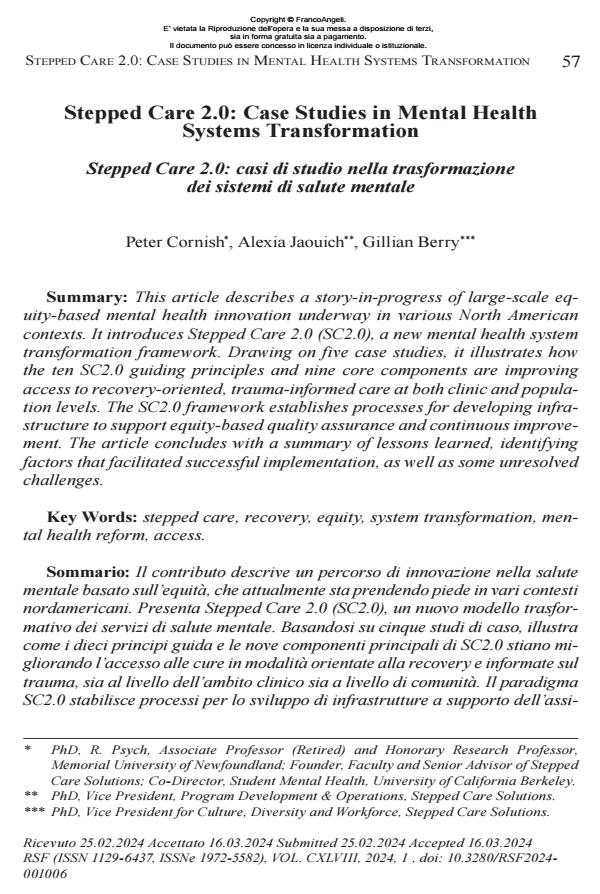Stepped Care 2.0: casi di studio nella trasformazione dei sistemi di salute mentale
Journal title RIVISTA SPERIMENTALE DI FRENIATRIA
Author/s Peter Cornish, Alexia Jaouich, Gillian Berry
Publishing Year 2024 Issue 2024/1
Language English Pages 24 P. 57-80 File size 807 KB
DOI 10.3280/RSF2024-001006
DOI is like a bar code for intellectual property: to have more infomation
click here
Below, you can see the article first page
If you want to buy this article in PDF format, you can do it, following the instructions to buy download credits

FrancoAngeli is member of Publishers International Linking Association, Inc (PILA), a not-for-profit association which run the CrossRef service enabling links to and from online scholarly content.
This article describes a story-in-progress of large-scale eq- uity-based mental health innovation underway in various North American contexts. It introduces Stepped Care 2.0 (SC2.0), a new mental health system transformation framework. Drawing on five case studies, it illustrates how the ten SC2.0 guiding principles and nine core components are improving access to recovery-oriented, trauma-informed care at both clinic and popula- tion levels. The SC2.0 framework establishes processes for developing infra- structure to support equity-based quality assurance and continuous improve- ment. The article concludes with a summary of lessons learned, identifying factors that facilitated successful implementation, as well as some unresolved challenges.
Keywords: stepped care, recovery, equity, system transformation, men- tal health reform, access.
Peter Cornish, Alexia Jaouich, Gillian Berry, Stepped Care 2.0: Case Studies in Mental Health Systems Transformation in "RIVISTA SPERIMENTALE DI FRENIATRIA" 1/2024, pp 57-80, DOI: 10.3280/RSF2024-001006